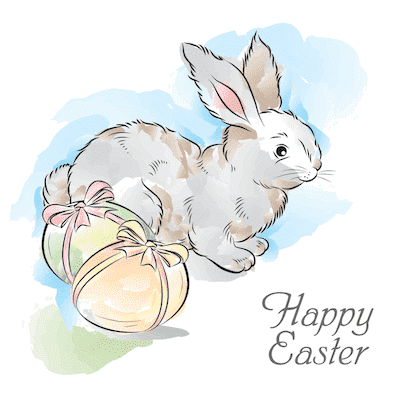Easter 2024 in Bulgaria: Traditions, Celebrations, and the Spirit of Renewal
Easter, known as “Великден” (Velikden) in Bulgarian, is a celebration that resonates deeply within the heart of Bulgaria. As the spring sun begins to warm the picturesque landscapes of this Balkan nation, the spirit of renewal and rebirth is palpable. With Easter 2024 on the horizon, let’s embark on a journey to understand the rich tapestry of traditions, celebrations, and the profound spiritual significance of this holiday in Bulgaria. Let’s have a look at the complete details of Easter 2024 in Bulgaria.
Historical Roots of Bulgarian Easter
Origins of Easter Celebrations in Bulgaria
Bulgaria, with its ancient history, has seen the confluence of various cultures and traditions. However, it’s the Orthodox Christian faith that has left an indelible mark on its Easter celebrations. Rooted in centuries-old customs, Bulgarian Easter is a blend of religious fervor and cultural festivities.
Influence of Orthodox Christianity on Bulgarian Easter Traditions
The Eastern Orthodox Church has played a pivotal role in shaping Bulgaria’s spiritual landscape. Easter, being the most revered of all Christian holidays, is observed with unmatched devotion. The church’s teachings, liturgical practices, and rituals have deeply influenced how Bulgarians commemorate the resurrection of Christ.
Read Also: Easter 2024 in the UK
Determining the Date: Orthodox Calendar
Explanation of the Eastern Orthodox Church Calendar
Unlike the Gregorian calendar, which is widely used in the West, the Orthodox Church follows the Julian calendar. This difference in calendars often results in the Orthodox Easter being celebrated on different dates than its Western counterpart.
How the Date for Easter is Determined
The date for Orthodox Easter is determined based on the Paschal Full Moon. It’s typically celebrated after the Jewish Passover, ensuring that it always falls after the spring equinox.
Pre-Easter Traditions
The Significance of the Lenten Period
The Great Lent, a period of fasting and reflection, precedes Easter. For 40 days, devout Bulgarians abstain from meat, dairy, and eggs, preparing spiritually for the Holy Week.
Lazarovden (Lazarus Saturday) and Its Customs
Lazarovden, falling a week before Easter, is a celebration of the resurrection of Lazarus by Jesus. Young girls dressed in traditional attire sing and dance, heralding the imminent arrival of Easter.
Holy Week Rituals
Overview of the Week Leading Up to Easter Sunday
The week preceding Easter, known as Holy Week, is marked by a series of church services, each symbolizing different events from the last days of Jesus’ life on Earth.
Traditions of Holy Thursday
Holy Thursday is significant for its egg-dyeing tradition. The first egg, dyed red, symbolizes the blood of Christ and is set aside as a talisman for the household.
Easter Sunday: Celebrations and Significance
Midnight Church Services
As the clock strikes midnight, churches across Bulgaria resonate with the proclamation “Христос воскресе!” (Christ is Risen!). The joyous response, “Наистина воскресе!” (Truly, He is Risen!), echoes as believers exchange greetings.
The Ritual of Cracking Red Eggs
The red eggs, symbolizing the blood of Christ and rebirth, play a central role in Easter celebrations. A fun tradition involves cracking these eggs, with the person holding the uncracked egg believed to have a year of good luck.
Traditional Easter Foods
Kozunak, a sweet bread, and roasted lamb are staples on the Bulgarian Easter table. These dishes, rich in symbolism and flavor, are eagerly awaited throughout the Lenten period.
Bulgarian Easter Customs and Symbols
The Dominance of Red
Red, symbolizing the blood of Christ and love, is a dominant color during Bulgarian Easter. From eggs to attire, the vibrant hue is omnipresent.
The “Easter Dance” Ritual
In some regions, believers perform a special “Easter dance” around the church, expressing their joy and reverence.
The Role of the Church Bell
The church bell, silent during the Lenten period, rings out joyously on Easter, heralding the resurrection of Christ.
Family Gatherings and Celebrations
Importance of Family
Easter in Bulgaria is as much about family as it is about faith. Generations come together, sharing stories, meals, and creating memories.
Traditional Games and Songs
From egg-cracking competitions to singing traditional Easter songs, the festive spirit is infectious.
Easter Monday: “Wet Monday”
This unique Bulgarian tradition involves sprinkling water on family and friends, symbolizing purification and the onset of spring.
Regional Variations in Celebrations
From the snow-capped peaks of Rila to the golden sands of the Black Sea coast, Easter celebrations in Bulgaria, while rooted in tradition, have regional nuances. Each region adds its unique flavor, making the celebrations diverse and vibrant.
Modern Celebrations and the Youth
While deeply rooted in tradition, Bulgarian Easter is also evolving. The younger generation, while respecting age-old customs, is blending modernity, ensuring that the celebrations remain relevant and inclusive.
Conclusion
Easter in Bulgaria is a testament to the nation’s deep spiritual roots, rich cultural heritage, and the unyielding spirit of its people. As the Easter bells ring out in 2024, they will not just herald the resurrection of Christ but also the resilience, unity, and boundless love of Bulgarians. In the heart of the Balkans, Easter is not just a religious observance; it’s a celebration of life, love, and the eternal hope of renewal.








One Comment